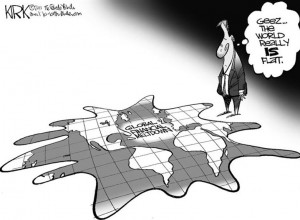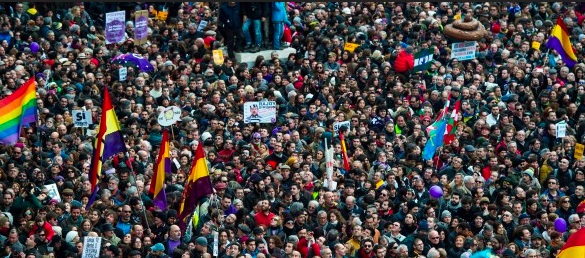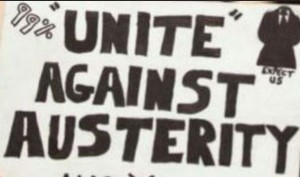Suzanne Moore writes: Who will look after the super-rich and think about their needs Private security costs a fortune, and with the world becoming an increasingly unequal place a certain instability increases. It could be dangerous!
Very smartly, Oxfam International is raising such questions at the World Economic Forum at Davos, where the global elite gather to talk of big ideas and big money. Oxfam executive director, Winnie Byanyima, is arguing that this increasing concentration of wealth since the recession is “bad for growth and bad for governance”. What’s more, inequality is bad not just for the poor, but for the rich too.
The economic climate is often represented as a natural force, like uncontrollable weather. It’s a shame that the planet is getting hotter, just as it’s a shame that the rich are getting richer. But these things are man-made and not inevitable at all. In fact, there are deliberate and systemic reasons as to why this is happening.
The rich, via lobbyists and Byzantine tax arrangements, actively work to stop redistribution. Inequality is not inevitable, it’s engineered. Many mainstream economists do not question the degree of this engineering, even when it is highly dubious. This level of acceptance among economists of inequality as merely an unfortunate byproduct of growth, alongside their failure to predict the crash, has worryingly not affected their cult status among blinkered admirers.
Even the mild challenge of Thomas Piketty, with his heretical talk of public rather than private interest being essential to a functioning democracy, is revolutionary in a world which buys the conservative idea that the elixir of “growth” simply has to mean these huge extremes in income distribution.
That argument may now be collapsing. The contortions that certain pet economists make to defend the indefensible 1% are often to do with positing the super-rich as inherently talented and being self-made. The myth is that everyone is a cross between Steve Jobs and Bono; creative, entrepreneurial, unique.
There are always those who will side with the powerful against the powerless, and economists specialise in this.
When we talk of neoliberalism, we are talking about something that has fuelled inequality and enabled the 1%.
Oxfam’s suggestions at Davos are attempts to claw back some basic rights, with talk of tax, redistribution, minimum wages and public services. But isn’t it rather incredible that a charity has to do this? The Occupy movement has dissipated, but we are seeing in Europe, primarily in Greece and Spain, a refusal to accept the austerity narrative that we appear to have wolfed down here in the UK.
The neoliberal project may fail not because of huge protest, but because reduced income means reduced demand. Never mind the angry proletariat, a disappointed middle-class is something all politicians fear. To stem inequality, it is imperative to stop seeing it as inevitable. It’s a choice. A choice very few of us have any say in. The poor are always with us. And now the deserving and undeserving super-rich are too? That’s just the way things are? No. This climate can also change.






 Contribute one to your chairty of choice.
Contribute one to your chairty of choice.


